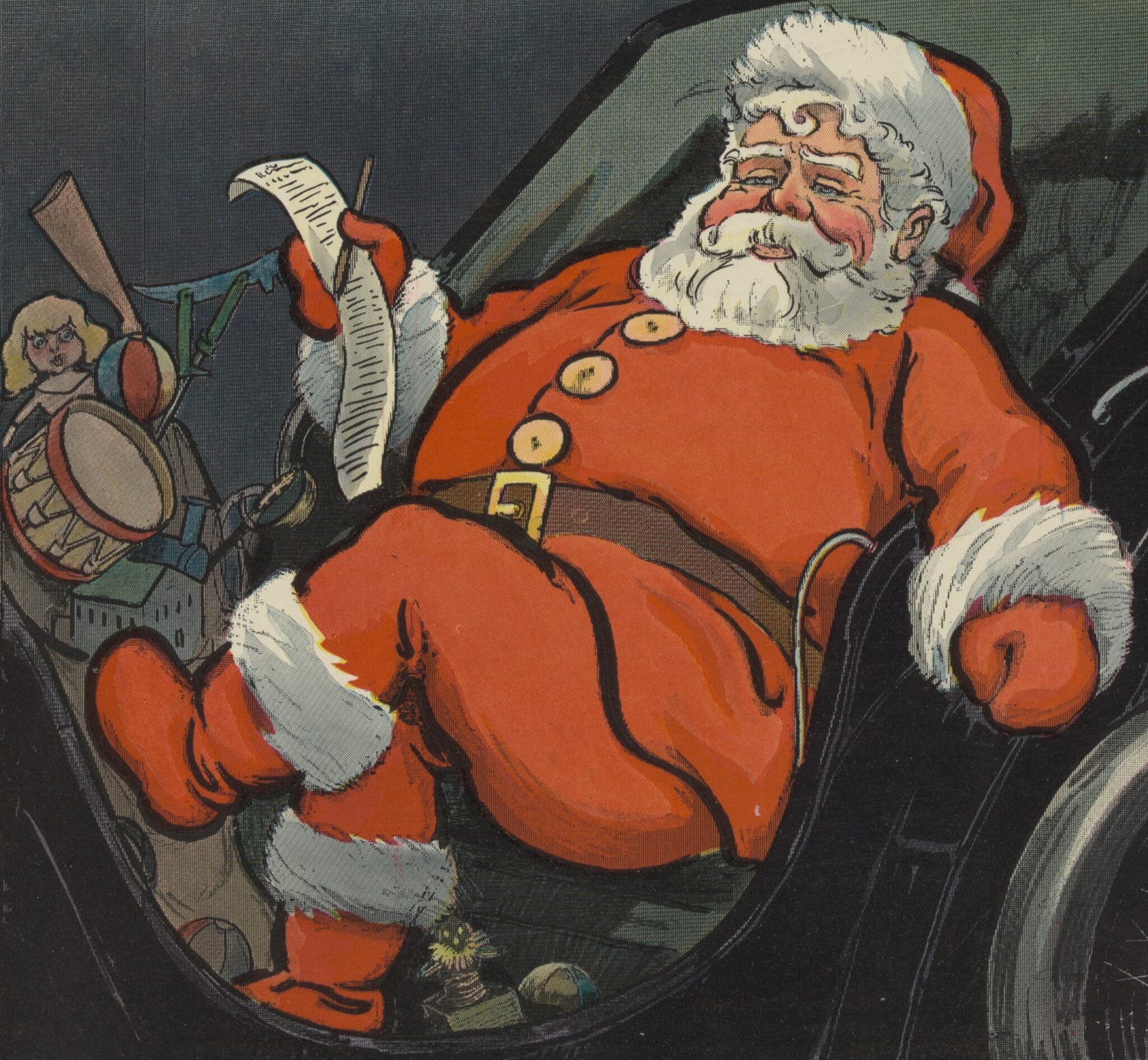Today’s Poem: A Visit from St. Nicholas
’Twas the night before . . . oh, you know how it goes

A Visit from St. Nicholas
by Clement Clarke Moore
’Twas the night before Christmas, when all through the house Not a creature was stirring, not even a mouse; The stockings were hung by the chimney with care, In hopes that St. Nicholas soon would be there; The children were nestled all snug in their beds; While visions of sugar-plums danced in their heads; And mamma in her ’kerchief, and I in my cap, Had just settled our brains for a long winter’s nap, When out on the lawn there arose such a clatter, I sprang from my bed to see what was the matter. Away to the window I flew like a flash, Tore open the shutters and threw up the sash. The moon on the breast of the new-fallen snow, Gave a lustre of midday to objects below, When what to my wondering eyes did appear, But a miniature sleigh and eight tiny rein-deer, With a little old driver so lively and quick, I knew in a moment he must be St. Nick. More rapid than eagles his cours…
Keep reading with a 7-day free trial
Subscribe to Poems Ancient and Modern to keep reading this post and get 7 days of free access to the full post archives.



